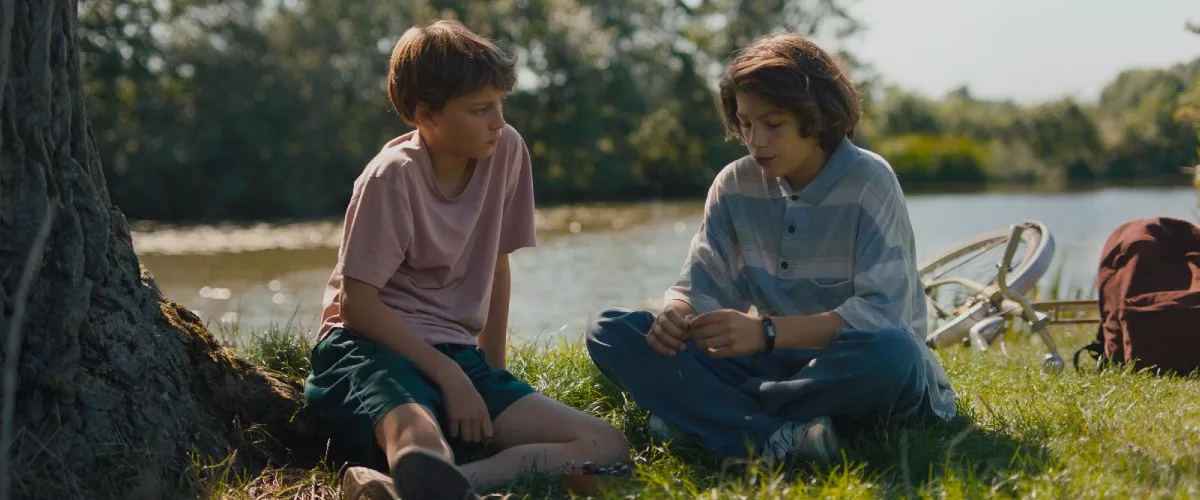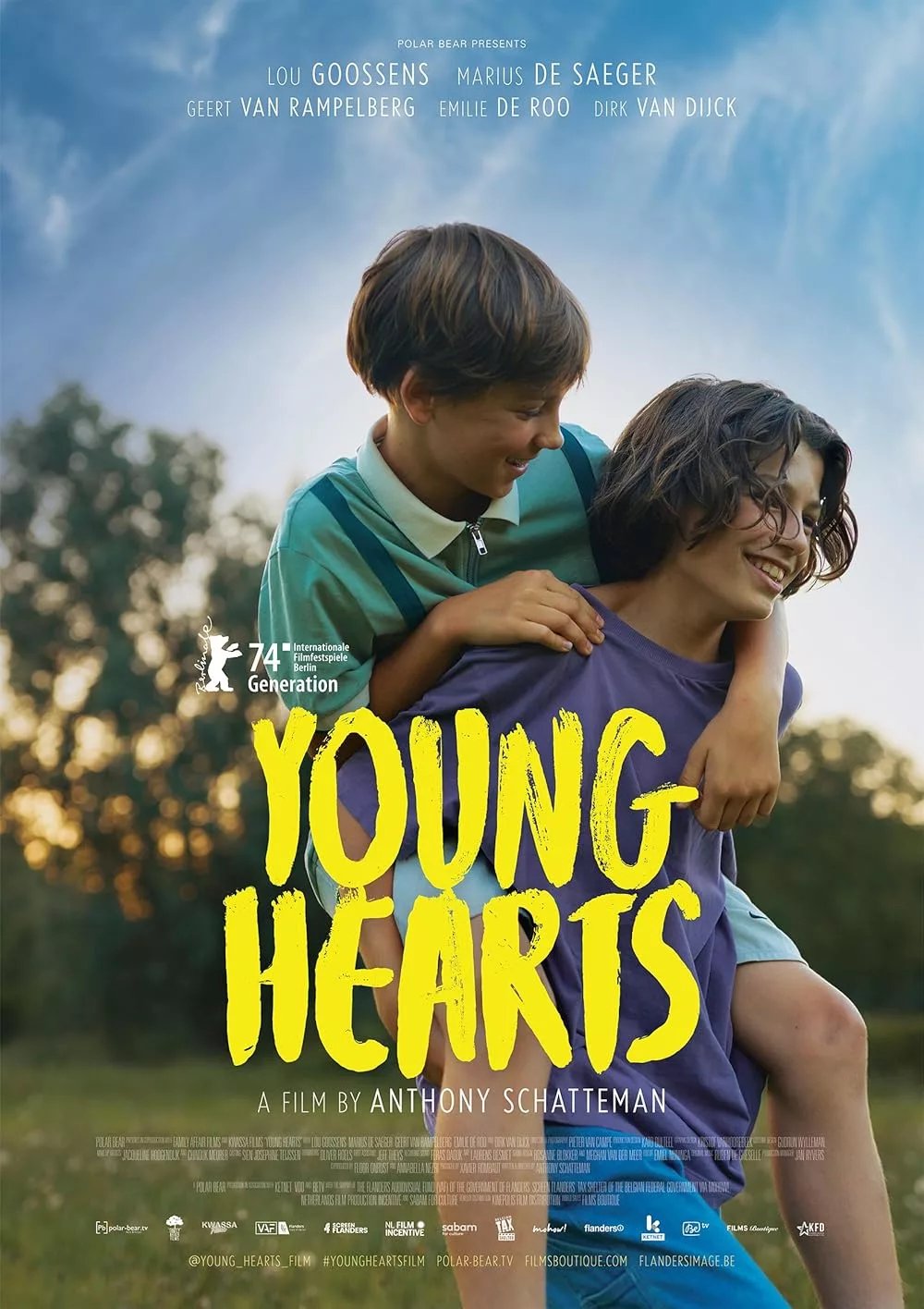The kindhearted, queer adolescent love story in Anthony Schattenman’s “Young Hearts” is what Lukas Dhont thought he was doing with “Close.” Where “Close” used queer pain to manipulatively pull compassion, “Young Hearts” actually appears to care about its young leads. It tells the story of a 14-year-old kid who falls for the boy next door, causing him to question his sexuality and somewhat rebel against his parents. Sweet and earnest, this is the kind of film that’s easy to wrap your arms around because it understands that coming of age is inherently traumatic. It needn’t be overly dramatized.
Lou Goossens stars as Elias, a quiet, unassuming kid living in a small village in the Netherlands. His family is mostly a prototypical household: his older brother is dating, his caring mother, Nathalie (Emilie De Roo), supports his father, and his empathetic grandfather (Dirk van Dijck)—who will be pivotal in his journey— works a farm. The quirkiest person in his family is his father, Luk (Geert Van Rampelberg), a lounge singer experiencing a brush with modest fame with a ditty he performs at retirement homes and community centers. Elias sorta has a girlfriend in Valerie (Saar Rogiers), but you can immediately measure how little he appears to be attracted to her. Elias, it might be said, only lives an archetypical life because it’s what one expects of a boy his age.
That changes when Alexander (Marius De Saeger), a kid from Brussels, moves next door. Alexander not only lost his mother long ago, but he also comes from the big city. So you can see how he might be more mature, more worldly than the provincial Elias. As such, Alexander arrives, comfortably expressing his queerness. When he and Elias begin hanging out—lounging underneath a shady tree, exploring an abandoned manor, and jumping into a pond—Alexander makes it clear he’s loved a boy before. Elias, on the other hand, has never loved anyone. Their dynamic, therefore, follows a common queer motif of the more experienced partner guiding the contemplative neophyte through the emotional growing pains that come while discovering themselves.
Though the cozy photography supporting this delicate story might lead some to accuse it of being twee, the film feels soothing and warm as Alexander and Elias tenderly bike down dirt roads and share furtive glances. Schattenman trusts his young leads, often allowing his gentle lens to linger on their faces as new thoughts, feelings, and passions bubble to the surface. Their excitement doesn’t metastasize in an overtly physical manner—they’re as brief and guarded as you’d expect—but Schattenman understands that for a 14-year-old, even a peck on the cheek from their first love can cause entire universes to explode.
If there are gripes that could be levied at “Young Hearts,” it’s the fact that nothing unexpected happens, and the rural set pieces are so commonplace you feel like you’ve seen several movies like this before. Familiarity, however, doesn’t breed inadequacy. This is to say that my colleagues will often dismiss a movie from a marginalized group if there are already other examples of it, intimating that there can only be one or two of these before they get repetitive. Whereas we get a million versions and remakes of normative stories. I’ll take a million versions of Romeo and Juliet (this movie makes a couple of winking references to the Baz Luhrmann version) and a million tender movies just like “Young Hearts.”




















